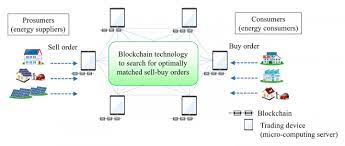The internet can be scary, and it’s only getting more threatening. From malware to identity theft, there’s no shortage of malicious actors out there who would love to use your data for their gain. That’s why it’s essential to be proactive regarding your online safety.
It was once possible to trust that your information was safe and secure, but we now know this isn’t always true. We all play a part in keeping ourselves and our data safe while browsing the web. In this article, we’ll share some tips and tricks on protecting yourself from potential threats online.
We will discuss the importance of using passwords, the advantages of using a VPN, how to recognize potential scams and phishing attacks, and other proactive ways to protect yourself online.
Overview of the Risks of Unmonitored Internet Use
Many people take internet safety for granted, but it is crucial to stay safe online. Without protecting yourself against cyber attacks, you risk losing personal and financial information or being exposed to malicious content.
Here are some of the risks associated with unmonitored internet use:
Spam and phishing emails: Spam and phishing emails are sent out by criminals trying to solicit your personal or financial information or install malicious software on your computer.
Malicious websites: Malicious websites can contain ransomware, viruses, and other types of malware.
Data theft: Unprotected networks can be vulnerable to data theft from hackers who can access your email, bank account information, and other sensitive data.
Identity theft: Unsecured websites can make you vulnerable to identity theft as hackers could gain access to your social security number, address, and more.
How to Recognize Suspicious Websites & Emails
Suspicious websites and emails usually have glaring warning signs—so if something looks off, it’s best not to continue without checking further. You can check your kid’s computer with pc spy software
Here are some key red flags:
Unsolicited messages appearing out of the blue—anything from a job offer to a phony reward notice
An email that asks for personal information such as your birth date, social security number, or credit card details
Poorly written or unprofessional copy on the website
Unusual interaction requests through foreign social media accounts.
Unrecognizable addresses and URLs from companies that are supposedly sending you info
If any of these things seem off to you, take the time to investigate further. For example, you can search online for more information about the source—or contact the company independently to ensure it’s legit.
Awareness & Education: Key to Staying Safe Online
You may not know the digital risks to your online safety, but staying informed is essential. Educating yourself and those you care about—family, friends, colleagues—can go a long way in helping maximize online safety.
Understanding the Risks
Awareness of the many risks associated with unmonitored internet use is critical. Knowing what those risks are means that you can take steps to protect yourself against them. For example, being aware of the dangers of phishing scams means that you can prevent yourself from falling victim to one such scam. Additionally, understanding how malware works will help you spot instances of malicious software before they can cause harm.
Take Proactive Steps
Taking proactive steps to guard your online security is as important as knowing the risks. Some simple ways that you can protect yourself include:
- Regularly changing passwords and ensuring they are strong and secure;
- Using two-factor authentication for extra security;
- Virtual Private Network (VPN) can help you with secure web browsing; and
- It will help if you Install antivirus software on all devices connected to the internet.
Empowering yourself with knowledge about online security is essential to protect against any digital threats. So remember – stay informed and stay safe!
Conclusion
The internet is a massive part of life, and it can open up a world of opportunities, but there’s a dark side. It’s up to you to be aware and to take the proactive steps necessary to protect yourself and your data when browsing online. Educate yourself about the safety measures you can use to phone tracker piggyback off existing protections and learn to spot potential scams and malicious websites. Be informed and be proactive – it can make all the difference.





